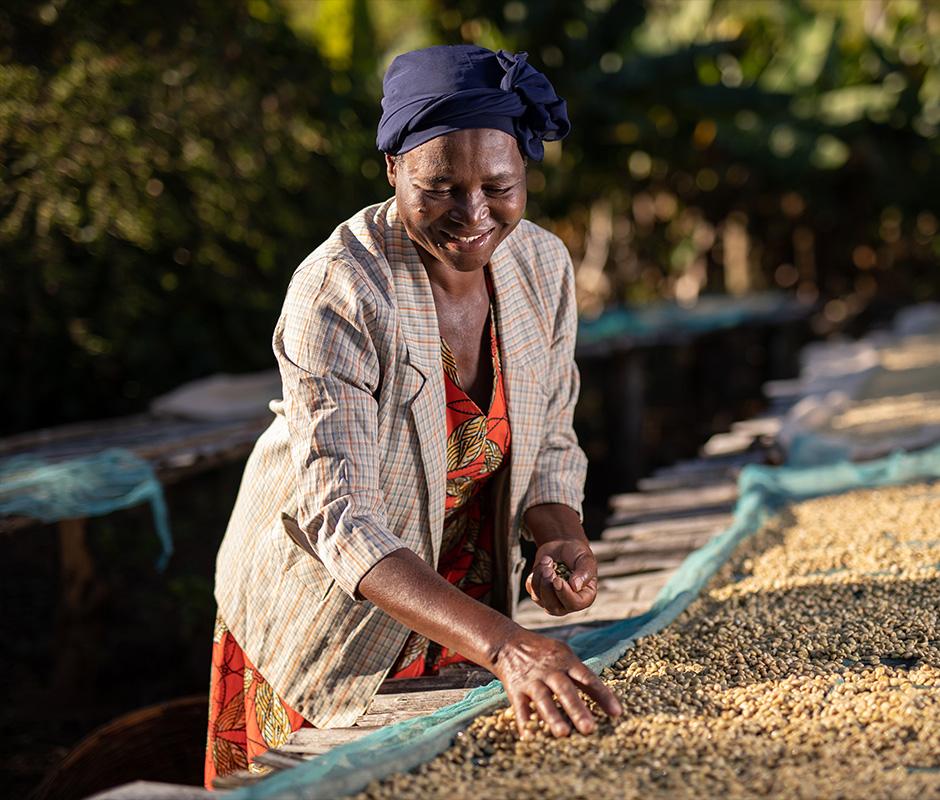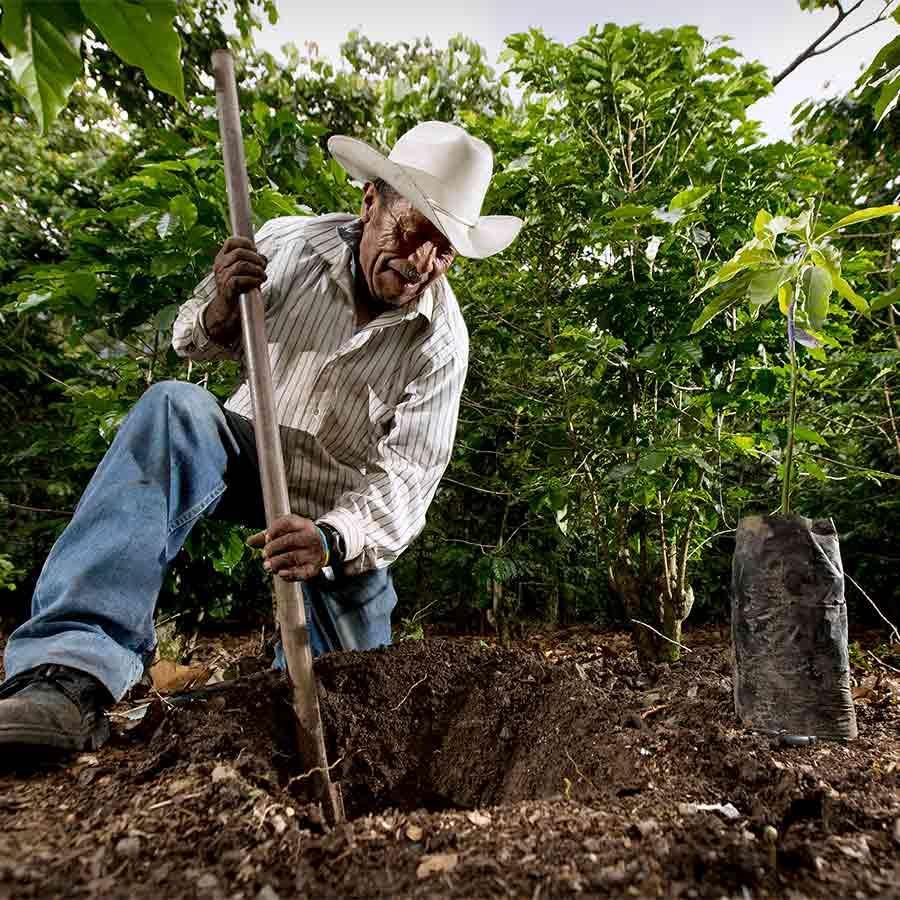The Nespresso AAA Sustainable Quality™ Program also seeks to build resilience within coffee farming communities, protecting them against the consequences of climate change and other environmental and social risks.
Community milling
Many smallholder coffee farmers process coffee cherries on their land, which often requires a lot of water and can lead to water contamination downstream, due to a lack of proper water treatment.
In 2010, we partnered with the cooperative of Antioquia, Cafexport and USAID to build a new coffee milling facility for one longstanding community of coffee farmers in Jardín, Colombia. This helped to reduce the environmental impacts of coffee processing while also improving the consistency of the coffee quality.
The coffee mill has transformed the lives of the farmers and their communities, saving 200 farmers up to four hours of processing time a day, and reducing water pollution and usage by over 60%.
A farmer pension scheme
In 2014, we created the AAA Farmer Future Program, a pioneering new pension scheme developed in partnership with Fairtrade International, the Colombian government and cooperatives in Caldas.
The program, which contributes to the retirement funds of coffee farmers, helps smallholders save for the future and safeguard their legacy, encouraging the next generation to stay with coffee farming.
Agroforestry – Planting trees
Since 2014, we’ve been working with Pur Projet and TechnoServe to protect and strengthen coffee farming by planting shade trees. We’ve planted 4.5 million native trees in coffee farms across Brazil, Colombia, Costa Rica, Ethiopia, Guatemala, Indonesia, Kenya, Nicaragua and Uganda. By 2020, our goal is to plant 5 million trees in and around our global farming communities.
Agroforestry models – where coffee is grown under the canopy of other trees – are uniquely valuable to coffee cultivation. Trees help absorb carbon dioxide, enrich the soil, reduce erosion, regulate water use and increase biodiversity. They also provide a diversified source of income to farmers so that they are not dependent on a single crop.


